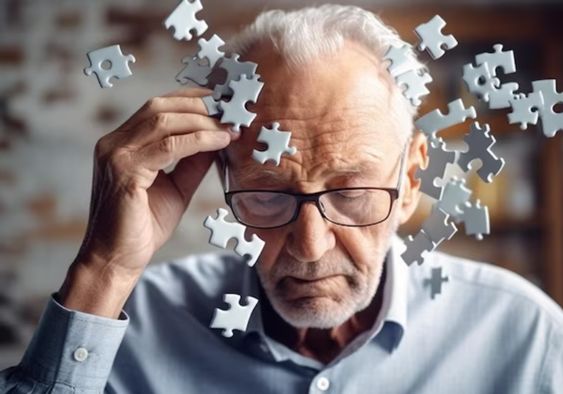Introduction:
Dementia is not a single disease but rather a general term used to describe a decline in cognitive function that affects daily life. This decline, which is greater than what would be expected from normal aging, can manifest in various ways, impacting memory, thinking, language, judgment, and behavior. It's important to remember that experiencing occasional forgetfulness is a normal part of aging and doesn't necessarily indicate dementia. However, if you or a loved one are experiencing persistent and concerning cognitive changes, it's crucial to seek professional medical advice.

Dementia significantly impacts not only the individuals diagnosed but also their families and caregivers. The progressive nature of the condition often necessitates adjustments in living situations, caregiving arrangements, and overall lifestyle. While there is currently no cure for most types of dementia, early diagnosis and intervention can help manage symptoms, slow disease progression, and improve quality of life for those affected.
Common Symptoms of Dementia:
Dementia can manifest in a wide array of symptoms, affecting each individual differently. However, some common signs include:
- Memory Loss: Difficulty remembering recent events, appointments, or conversations.
- Communication Challenges: Struggling to find words, follow conversations, or expressing thoughts clearly.
- Disorientation: Getting lost in familiar places, forgetting directions, or being confused about time and dates.
- Difficulty with Problem-Solving and Planning: Challenges with tasks that were once easy, such as following recipes or managing finances.
- Changes in Mood and Behavior: Experiencing mood swings, depression, anxiety, agitation, or apathy.
- Loss of Interest in Activities: Withdrawing from hobbies, social events, or activities that were once enjoyable.
Understanding the Causes of Dementia:
Dementia arises from damage to brain cells, which can be caused by various factors, leading to different types of dementia. Some common types and their causes include:
- Alzheimer's Disease: The most common type, characterized by the buildup of amyloid plaques and tau tangles in the brain, disrupting communication between brain cells.
- Vascular Dementia: Caused by damage to blood vessels in the brain, often due to stroke or other vascular conditions, affecting blood flow and oxygen supply to brain cells.
- Lewy Body Dementia: Characterized by the presence of Lewy bodies, abnormal protein deposits, in the brain, affecting thinking, memory, movement, and behavior.
- Frontotemporal Dementia: Involves damage to the frontal and temporal lobes of the brain, often leading to changes in personality, behavior, language, and movement.
Treatment and Management of Dementia:
While there is no cure for most types of dementia, various approaches can help manage symptoms, improve quality of life, and support individuals living with the condition. Treatment options often involve a combination of:
- Medications: Certain medications can temporarily improve cognitive symptoms or address behavioral changes associated with dementia.
- Therapies: Speech therapy can help with communication difficulties, while occupational therapy can assist with daily living skills and adaptations.
- Lifestyle Changes: Maintaining a healthy diet, regular exercise, social engagement, and mentally stimulating activities can contribute to overall well-being.
- Support for Caregivers: Resources and support groups can provide emotional support, practical guidance, and respite care for those caring for individuals with dementia.

.jpg)